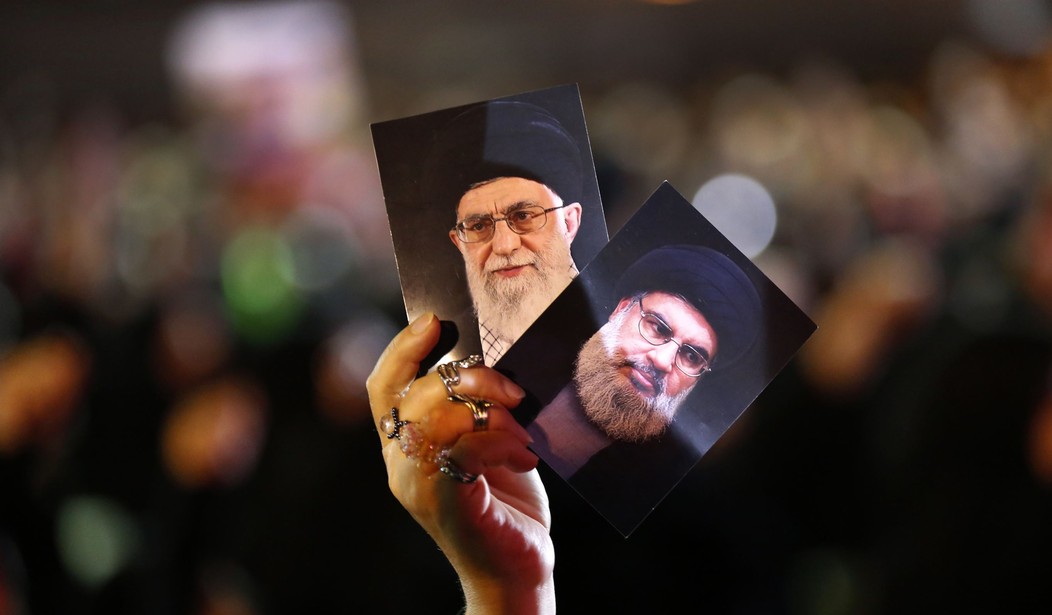Hezbollah leader Hassan Nasrallah met with a group of Iranian officials earlier this year according to a New York Times exclusive report. The revelation underscores the circumstances surrounding the current war between Israel and Hamas, which ignited after the terrorist group that governs the Gaza Strip launched a surprise attack against the Jewish nation.
Iran has a long history of training and arming proxy militia groups in the region, from Gaza to Lebanon, Iraq and Syria. It supports Hamas militarily and has helped it design and produce a domestic missile and rocket system to match the capabilities and material available in Gaza — an impoverished, densely populated coastal strip that has been blockaded by Israel and Egypt for the past 16 years.
And over the past year, there have been signs that Iran and its proxies were preparing to take a more aggressive approach toward Israel.
Gen. Esmail Ghaani, who is in charge of supervising Iran’s network of proxy militias as head of the country’s paramilitary Quds Force, repeatedly traveled to Lebanon for covert sessions with leaders of Hamas and Hezbollah, a Shiite Lebanese militia that Iran also supports.
Over the past year, Mr. Ghaani worked to coordinate and unify all of Iran’s proxies, according to public statements from Iranian analysts and five Iranians familiar with the work of the country’s Islamic Revolutionary Guards Corps.
New York Times: "Hassan Nasrallah, the leader of Hezbollah, held an hourslong online meeting in March with an elite group of strategists from all the Iran-backed militias and told them to get ready for a war with Israel with a scope and reach — including a ground invasion — that…
— Paul Cruickshank (@CruickshankPaul) October 13, 2023
The report detailed the meeting between Nasrallah and Iran’s strategists, noting that the discussion centered on a new military clash with Israel.
Hassan Nasrallah, the leader of Hezbollah, held an hourslong online meeting in March with an elite group of strategists from all the Iran-backed militias and told them to get ready for a war with Israel with a scope and reach — including a ground invasion — that would mark a new era, according to two participants from Iran and Syria. The participants spoke on the condition of anonymity because they were not authorized to publicly discuss the meeting.
There are conflicting accounts of whether these activities were leading specifically toward last week’s attack by Hamas, which left 1,200 Israelis dead and shattered the country’s sense of security.
Three Iranians tied to the country’s Revolutionary Guards who are familiar with the operation said “a tight circle of leaders from Iran, Hezbollah and Hamas helped plan the attack starting over a year ago” and “had advanced knowledge of it.”
However, others are not so sure that Iran was intimately involved with the plan.
Other people say they believe Iran had some involvement but it was not as deep. “The implementation was all Hamas, but we do not deny Iran’s help and support,” said Ali Barakeh, a senior Hamas official based in Beirut.
Iran’s supreme leader, Ayatollah Ali Khamenei, has publicly denied the country played a role, even as he and other Iranian leaders praised the carnage. “We kiss the foreheads and arms of the resourceful and intelligent designers,” Mr. Khamenei said this week in his first televised speech since the attack. But he added: “Those who say that the recent saga is the work of non-Palestinians have miscalculated.”
Yet, it is difficult to argue that Hamas acted alone in its attack on Israel. The assault showed remarkable sophistication, coordination, and execution that bore the hallmarks of advanced training and planning.
Moreover, it was also recently revealed that Nasrallah met with Iran’s Foreign Minister, Hossein Amirabdollahian, on Friday to discuss the situation on the ground in Israel and Gaza.
Hezbollah has engaged in skirmishes with the Israel Defense Forces (IDF) throughout the duration of the war. One of its leaders indicated that the terrorist group is “prepared” to ramp up its efforts against Israel in the region, which would mean the Jewish state would be forced into a two-front war. As time goes on, it is highly possible that the role Iran played in this matter will be further revealed.














Join the conversation as a VIP Member